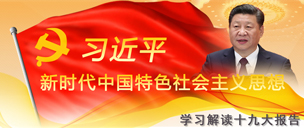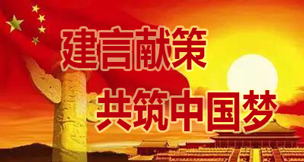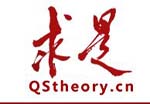
《金融時報》刊登首席經濟評論員馬丁·沃爾夫文章《中美即將進入百年沖突》
文:Martin Wolf
譯:Kris
1991年蘇聯從政治版圖上消失,留下了一個巨大的空洞。美國從此失去了敵人。盡管911事件之后美國發動了“反恐戰爭”,但后者畢竟遠不足以填補蘇聯曾經占據的位置。然而,不論從意識形態、軍事實力還是經濟水平等各個方面來看,中國都滿足許多美國人對敵人的需求。美國終于又遇到了一個與自己旗鼓相當的對手。這是我從今年的彼爾德伯格會議(譯注:Bilderberg meeting,始于1954年的年度非官方會議,百余名與會者皆為商政兩界頂級權貴,會議最初旨在促進歐美對話,后來在更多重大國際事務上施加決定性影響力,該會議不接受采訪報道也不透露任何內容,被稱為“全球影子政府”)中得出的主要結論。美國的經濟、外交和安全政策統統開始把與中國全面敵對競爭作為核心原則。
至于特朗普是否以此作為核心原則,其實并沒有那么重要。這位美國總統只需要跟隨他的民族主義和保護主義直覺。其他人將為他提供框架,填充細節。他們的目標是確保美國的主宰地位,實現該目標的手段是掌控中國或與中國脫鉤。在這場沖突過程中,以規則為基礎的多邊秩序、經濟全球化,以及國際關系的和諧都將成為犧牲品,任何對此懷有僥幸心理的人都被蒙蔽了。
6月2日,中國發布了令人震撼的《關于中美經貿磋商的中方立場》白皮書,證明了這一點。盡管我感情上不愿承認,但事實是,從許多方面來說中方立場都是正確的。美國抓住中美雙邊貿易失衡大做文章,這在經濟學角度看來屬于文盲行為。美方認為中國盜竊知識產權給美國造成巨大破壞,這個觀點也很成問題。美國還指責中國嚴重違反2001年加入世貿組織時的承諾,這種提法同樣屬于言過其實。
美方指責中國“作弊”顯得十分虛偽,因為特朗普政府采取的貿易政策幾乎統統都違反了世貿組織的規則。美國極力破壞世貿組織的爭端解決機制,等于從側面承認了美國違規的事實。在中美貿易談判當中,美國的立場可以總結為“強權即公理”。它堅持要求中國接受美方充當協議的審判員、陪審團和刀斧手這三重角色,恃強凌弱的態度體現得淋漓盡致。
雙方如果對市場開放或知識產權保護的某些條款持有爭議,可以通過慎重的談判來解決。這種解決方式甚至可以說對中國有好處,因為它可以使“看得見的手”減輕干預,促進市場化改革。但現在擺在雙方面前的問題太過于棘手,以至于這種解決方式已經無法奏效。造成當前這種狀況的原因一部分是談判破裂,雙方不歡而散;更主要的原因是美國已經開始質疑要不要與中國的國家主導型經濟融合,這種融合對美國有沒有好處。美國之所以對華為充滿恐懼,是因為它觸及了國家安全和技術自主的敏感神經。在美國眼里,自由經貿活動已經越來越等同于“與敵人做生意”。
美國正在出現一種新的思潮,將中美關系限定在零和沖突的框架里。不久前,作為美國國務院政策規劃主管(該職位曾經由冷戰戰略家喬治·凱南擔任)的凱潤·斯金納在新美國基金會組織的論壇上發表了一通言論,非常說明問題。她提出,中美之間的敵對關系是“美國與一個很不同的文明和不同的意識形態之間的爭斗,是美國過去從未遇到的”。她補充道,這是“美國首次以一個由非高加索人種構成的大國作為競爭對手”。她顯然忘記了美國與日本的戰爭。但更重要的是,她透過文明和種族戰爭的框架來看待中美關系,而文明和種族戰爭是不可調和的沖突。這絕非偶然。美國方面也沒有調整斯金納女士的職位。
除了文明和種族,還有許多人將中美沖突描述為一場圍繞著意識形態和權力展開的斗爭。強調意識形態的人認為中國官方強化了馬克思主義話語,黨扮演的角色也變得更加突出。強調權力的人則注意到中國經濟實力的崛起。這兩種觀點都指向中美長期沖突。
這是當前時代最重要的地緣政治發展趨勢。特別關鍵的一點在于,中美長期沖突將迫使其他所有國家選邊站隊,保持中立將越來越難。這個趨勢不僅重要,而且十分危險。中美關系原本雖然棘手但仍處于可控范疇以內,但如今的風險在于,它有可能莫名其妙地演變為一場全盤沖突。
中國的意識形態不像蘇聯那樣,它對自由主義民主沒有什么威脅。西方的右翼煽動分子反倒比中國更危險。任何企圖阻攔中國經濟和技術崛起的嘗試幾乎肯定會遭遇失敗。更糟糕的是,它會引起中國人民深深的敵意。隨著中國人民生活越來越富足、受教育程度越來越高,他們要求掌握自己的命運。從長遠來看,這樣的要求終究會得到滿足,但如果中國自然崛起的進程受到威脅,那這個進程就會大受挫折。此外,中國的崛起并不是導致西方弊病纏身的重要原因。相比之下,西方國家精英階層的冷漠和無能才是關鍵。什么叫做知識產權盜竊?它其實在很大程度上反映了一種事實,即崛起當中的經濟體必然試圖掌握時下最先進的技術。說到底,企圖永遠維持4%的人對全人類的統治才是非法的。
這當然不是說,中國說什么做什么我們都應該接受。相反,西方對待中國的最佳方式是矢志不渝地堅持自由、民主、以規則為基礎的多邊主義,以及全球合作等價值觀。這些思想曾經在全球范圍內團結了許多人,使他們成為美國的支持者。其中許多理念至今仍然吸引著許多中國人。今天,與從事環境、商業與和平事業時一樣,西方在與崛起的中國攜手合作的同時,也完全可以堅持這些思想,而且還要比過去更加堅定,這至關重要。
競爭與合作并重的相處之道才是中國與西方正確的前進方向。西方在應對中國崛起時,既要與志同道合的盟友密切合作,也要給予中國足夠的尊重。當前狀況的悲劇之處在于,特朗普政府在發動中美沖突的同時,還在攻擊盟友,摧毀美國主導的戰后秩序。美國對中國發起的攻擊是一場在錯誤的戰場上發起、以錯誤的方式進行的錯誤的戰爭。唉,這便是我們現在所處的位置。
The looming 100-year US-China conflict
The disappearance of the Soviet Union left a big hole. The “war on terror” was an inadequate replacement. But China ticks all boxes. For the US, it can be the ideological, military and economic enemy many need. Here at last is a worthwhile opponent. That was the main conclusion I drew from this year’s Bilderberg meetings. Across-the-board rivalry with China is becoming an organising principle of US economic, foreign and security policies.
Whether it is Donald Trump’s organising principle is less important. The US president has the gut instincts of a nationalist and protectionist. Others provide both framework and details. The aim is US domination. The means is control over China, or separation from China. Anybody who believes a rules-based multilateral order, our globalised economy, or even harmonious international relations, are likely to survive this conflict is deluded.
The astonishing white paper on the trade conflict, published on Sunday by China, is proof. The — to me, depressing — fact is that on many points Chinese positions are right. The US focus on bilateral imbalances is economically illiterate. The view that theft of intellectual property has caused huge damage to the US is questionable. The proposition that China has grossly violated its commitments under its 2001 accession agreement to the World Trade Organization is hugely exaggerated.
Accusing China of cheating is hypocritical when almost all trade policy actions taken by the Trump administration are in breach of WTO rules, a fact implicitly conceded by its determination to destroy the dispute settlement system. The US negotiating position vis-à-vis China is that “might makes right”. This is particularly true of insisting that the Chinese accept the US role as judge, jury and executioner of the agreement.
A dispute over the terms of market opening or protection of intellectual property might be settled with careful negotiation. Such a settlement might even help China, since it would lighten the heavy hand of the state and promote market-oriented reform. But the issues are now too vexed for such a resolution. This is partly because of the bitter breakdown in negotiation. It is still more because the US debate is increasingly over whether integration with China’s state-led economy is desirable. The fear over Huawei focuses on national security and technological autonomy. Liberal commerce is increasingly seen as “trading with the enemy”.
A framing of relations with China as one of zero-sum conflict is emerging. Recent remarks by Kiron Skinner, the US state department’s policy planning director (a job once held by cold war strategist George Kennan) are revealing. Rivalry with Beijing, she suggested at a forum organised by New America, is “a fight with a really different civilisation and a different ideology, and the United States hasn’t had that before”. She added that this would be “the first time that we will have a great power competitor that is not Caucasian”. The war with Japan is forgotten. But the big point is her framing of this as a civilisational and racial war and so as an insoluble conflict. This cannot be accidental. She is also still in her job.
Others present the conflict as one over ideology and power. Those emphasising the former point to President Xi Jinping’s Marxist rhetoric and the reinforced role of the Communist party. Those emphasising the latter point to China’s rising economic might. Both perspectives suggest perpetual conflict.
This is the most important geopolitical development of our era. Not least, it will increasingly force everybody else to take sides or fight hard for neutrality. But it is not only important. It is dangerous. It risks turning a manageable, albeit vexed, relationship into all-embracing conflict, for no good reason.
China’s ideology is not a threat to liberal democracy in the way the Soviet Union’s was. Rightwing demagogues are far more dangerous. An effort to halt China’s economic and technological rise is almost certain to fail. Worse, it will foment deep hostility in the Chinese people. In the long run, the demands of an increasingly prosperous and well-educated people for control over their lives might still win out. But that is far less likely if China’s natural rise is threatened. Moreover, the rise of China is not an important cause of western malaise. That reflects far more the indifference and incompetence of domestic elites. What is seen as theft of intellectual property reflects, in large part, the inevitable attempt of a rising economy to master the technologies of the day. Above all, an attempt to preserve the domination of 4 per cent of humanity over the rest is illegitimate.
This certainly does not mean accepting everything China does or says. On the contrary, the best way for the west to deal with China is to insist on the abiding values of freedom, democracy, rules-based multilateralism and global co-operation. These ideas made many around the globe supporters of the US in the past. They still captivate many Chinese people today. It is quite possible to uphold these ideas, indeed insist upon them far more strongly, while co-operating with a rising China where that is essential, as over protecting the natural environment, commerce and peace.
A blend of competition with co-operation is the right way forward. Such an approach to managing China’s rise must include co-operating closely with like-minded allies and treating China with respect. The tragedy in what is now happening is that the administration is simultaneously launching a conflict between the two powers, attacking its allies and destroying the institutions of the postwar US-led order. Today’s attack on China is the wrong war, fought in the wrong way, on the wrong terrain. Alas, this is where we now are.
(End)
1、本文只代表作者個人觀點,不代表本站觀點,僅供大家學習參考;
2、本站屬于非營利性網站,如涉及版權和名譽問題,請及時與本站聯系,我們將及時做相應處理;
3、歡迎各位網友光臨閱覽,文明上網,依法守規,IP可查。
作者 相關信息
內容 相關信息
? 昆侖專題 ?
? 十九大報告深度談 ?

? 新征程 新任務 新前景 ?

? 習近平治國理政 理論與實踐 ?

? 我為中國夢獻一策 ?

? 國資國企改革 ?

? 雄安新區建設 ?

? 黨要管黨 從嚴治黨 ?

圖片新聞










































